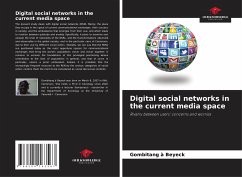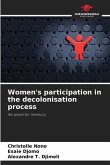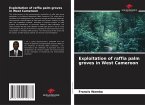The present study deals with digital social networks (DSN). Mainly, the place they occupy in the space of current communicational exchanges, their success in society, and the ambivalence that emerges from their use, and which leads to rivalries between quietude and anxiety. Specifically, it plans to examine and analyze the level of rationality of the NSRs, and the transformations observed and observable in the global society, and in the particular case of Cameroon, due to their use by different social actors. Globally, we can say that the RSNs are positioned today as the most opportune spaces for communicational exchanges that bring the world's populations closer and closer together. It remains to uncover the foundations of this privileged positioning whose contribution to the lives of populations in general, and that of users in particular, seems a priori ambivalent. Indeed, it is probable that the increasingly frequent recourse to the RSN by the various categories of social actors confers them the merit to be considered as social discursive contents.
Bitte wählen Sie Ihr Anliegen aus.
Rechnungen
Retourenschein anfordern
Bestellstatus
Storno








